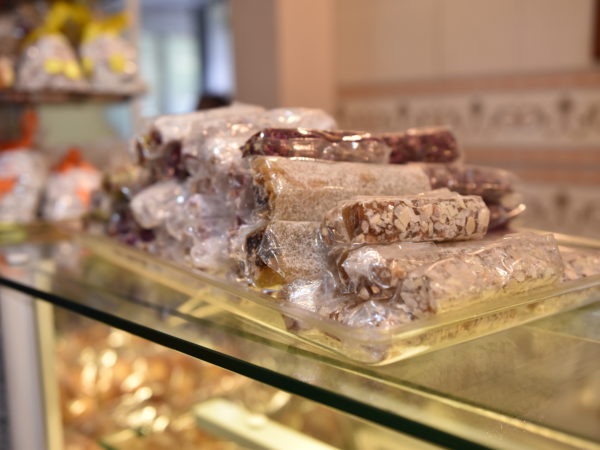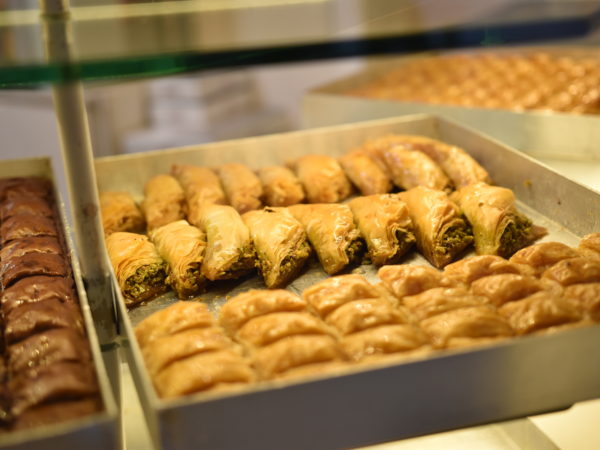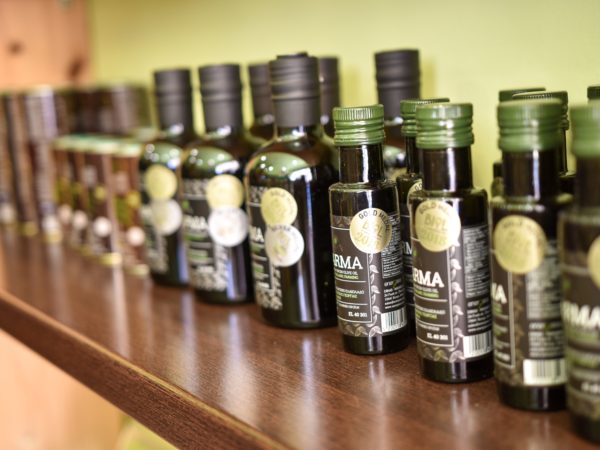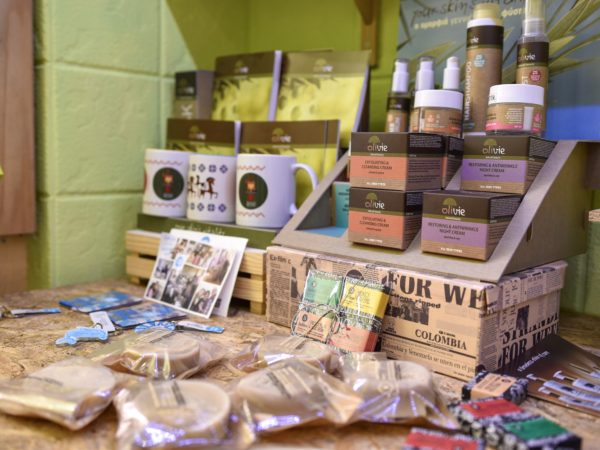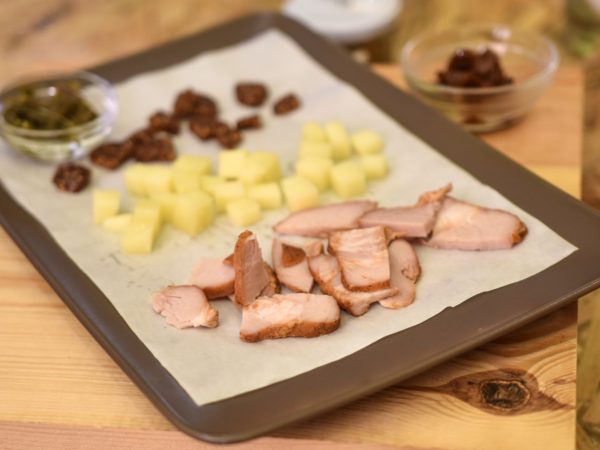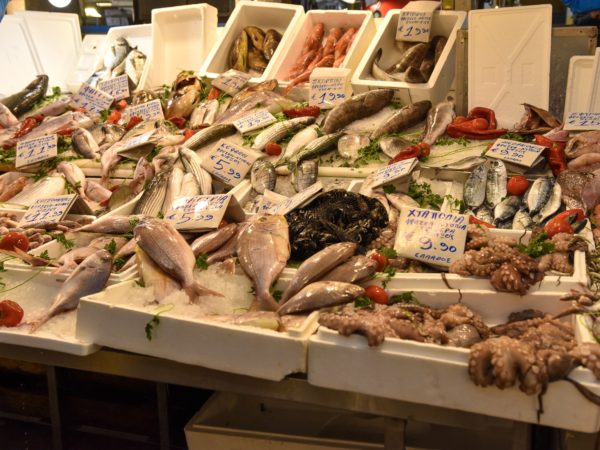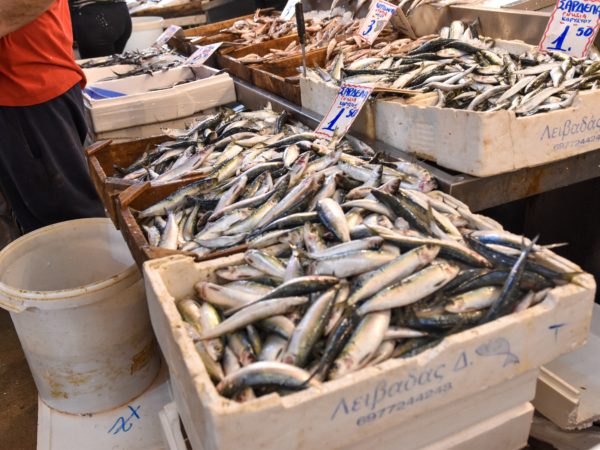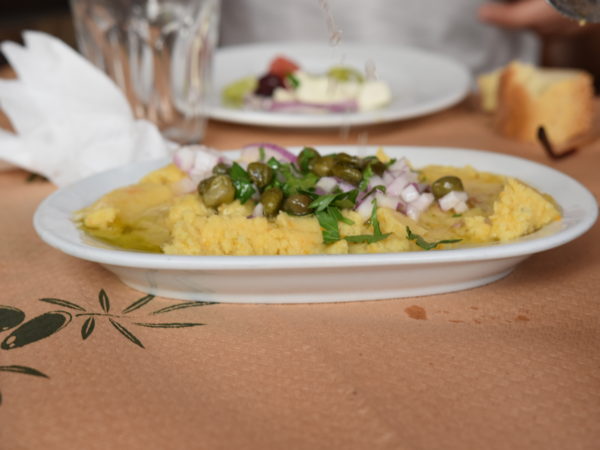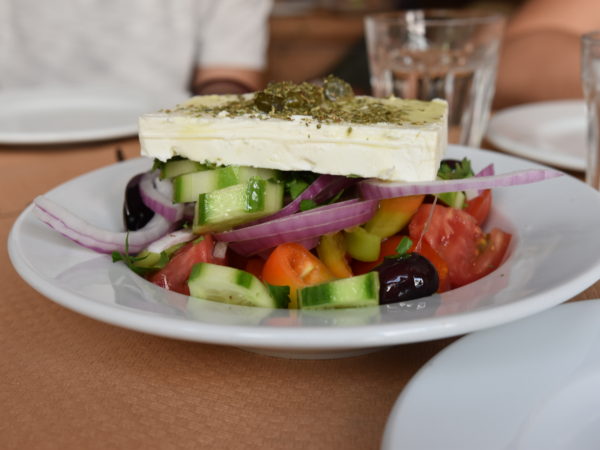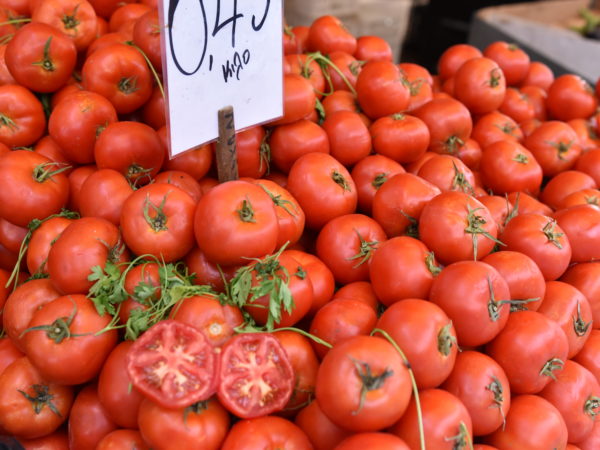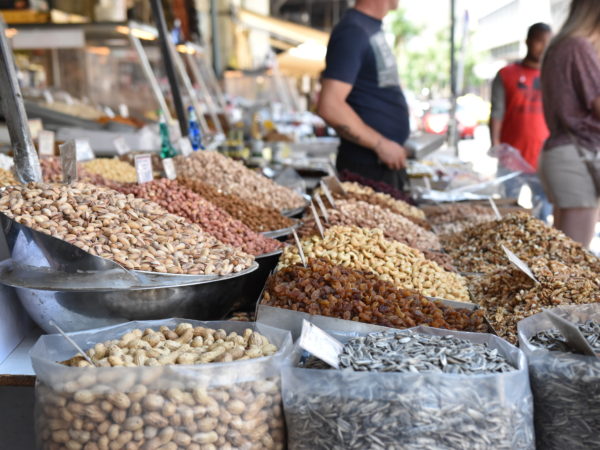One of the best ways to explore culture is through food and it just so happens that eating happens to be one of my favorite activities. On my last trip to Athens, I decided I would combine my love of culture, history, and food and partner with Alternative Athens to experience their Delicious Athens Food Tour. This tour is great because you go with an experienced local guide and foodie, and walk through the various neighborhoods, learning their history, all the while savoring the Greek cuisine in some of the tastiest spots.
Greek Cuisine
Greek cuisine has four tenants: good quality fresh ingredients, correct use of flavorings (herbs) and spices, the world famous Greek olive oil and simplicity. The Greek diet is also famous worldwide for contributing to good health. Dozens of scientific studies have shown the positive effect of a balanced Greek diet on a person’s health, beauty and longevity. Additionally, most of the Greek culinary creations are made with time-honored tasty recipes dating back centuries, good quality ingredients, and original preparation techniques.
The Tour
We met our guide Katherina in Syntagma Square and headed to Karakoy Gulluoglu, a Greek bakery in the same neighborhood and one of the best bakeries in Athens. They offer a variety of desserts, including baklavas and kataifi. Having had baklava before, I was amazed at the sheer number of different types of baklava they carried.
Too my surprise, many cultures claim baklava as their national dish, including Syria, Turkey and Greece. I was served a traditional baklava prepared the same way it was made during the Byzantine empire. Warm and fresh out of the oven, it was absolutely delicious. I also learned that the pastries at Karakov Gulluoglu are made with a combination of cow and sheep butters which give them their distinct flavors.

The next stop on our journey was at “the best” bakery and Athens, Pnyka bakery. The bakery is named after the hill in Athens where democracy was founded and they serve up some of the best breads in the city. We just beat the line that began to form after our arrival, adding credence to the “best bakery” title. After getting the bread, we held off on tasting it and made our way to a shop that specializes in producing olive oil and olive oil related products. After all, what’s good bread without some good olive oil to eat it with?
Here we learned that the olive tree was the gift of the goddess Athena to Athens. Its product, olive oil, has ever since been present in the Greek diet. It’s always been very valuable, used in cosmetics, medicines, and more. Even Alexander the Great even traded gold for it. Olive oil is eaten in various combinations, raw (as in a Choriatiki salad) or cooked in almost every Greek dish. A healthier substitute than butter, you will find top quality olive oil in many areas throughout Greece. We cleansed our pallete with Grappa, an alcohol made from leftover grape parts, then sampled some of the worlds best olive oils alongside meats and the breads from Pnyka.
Another delicious Greek delicacy I got to eat on this journey is Souvlaki. Souvlaki is the top Greek street food and is made with pork, onions, tomato, paprika, tzatziki and Greek pita bread. Tzatziki is Greek yogurt dip made from strained yogurt, cucumber, garlic cloves, olive oil, spearmint, vinegar, and chopped dill and is present in many Greek dishes. A savory dish, it’s filling but not at all heavy.
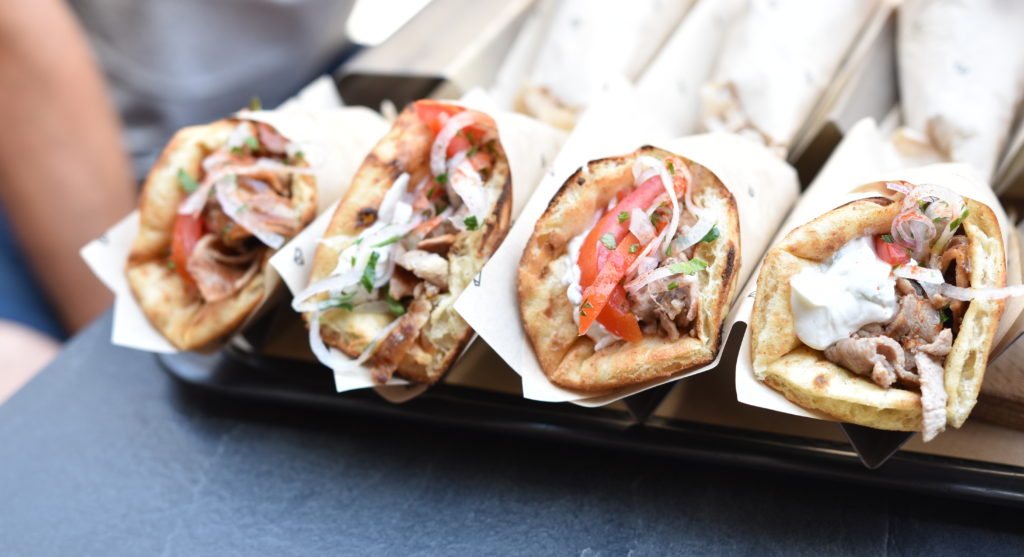
In addition to olive oil and fresh vegetables, fresh fish and meats are also a staple in Greek cuisine. We had the opportunity to take a stroll through one of largest meat markets in Athens. You’ll be amazed at the range of products as you see in the market as well as the sights and scents of the market. With endless stretches of coastline, 80% percent of the food in the market originates from somewhere in Greece. Greek seafood can be eaten raw or cooked and served in a variety of ways. Seafood in Greece is usually served as an appetizer (meze) and prepared on charcoal or grill, fried or boiled.
The Greek mainland and the mountainous areas on islands is where you’ll find great tasting meats. Here, you’ll find mostly lamb, pork or goat. I encountered very little beef while in Greece. Even the dairy products usually stem from goats. There’s no end to the great-tasting culinary combinations you can try from the products in the market.
We ended the tour in a a few more restaurants, trying more Greek delicacies. Beautiful fresh salads, dishes made from farver beans and so much more. Greece is certainly a food heaven, and with this tour, I had an opportunity to taste a slice of it.
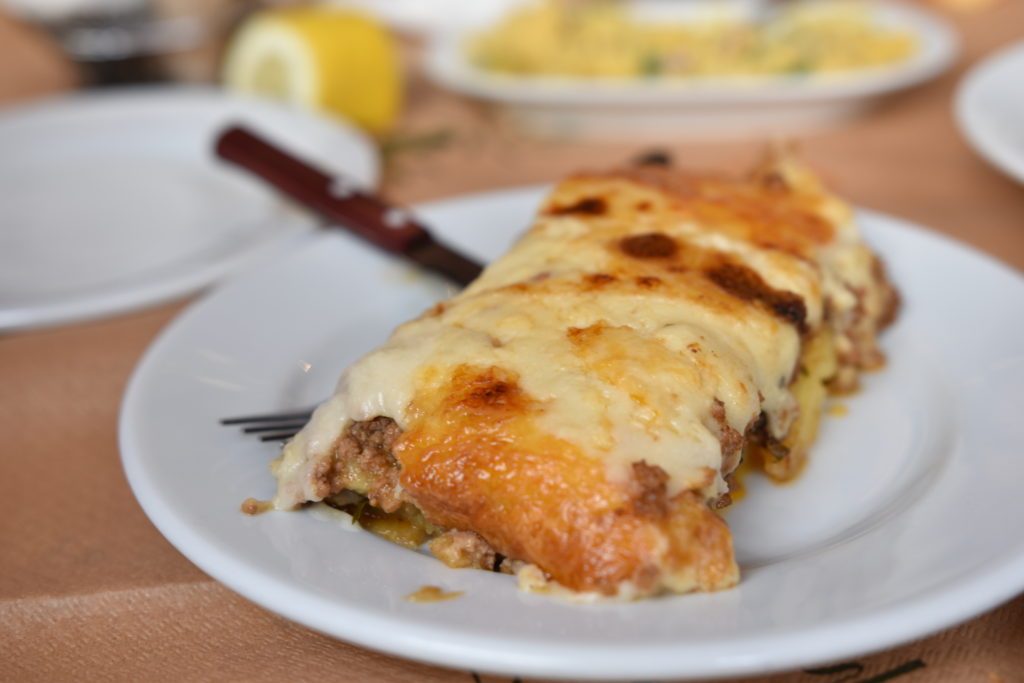
What to Bring
The food tour consists of about 3.5 hours of walking around Athens so first and foremost, be sure to bring comfortable walking shoes. I would also recommend a hat and sunscreen if it’s the summertime and the sun is shinning. I would also recommend bringing a bottle of water, though you can always grab a bottle of two on your way. Most importantly, be sure to bring along your appetite!
You can find Alternative Athens online at https://www.alternativeathens.com/
Follow them on Instagram at @altathens
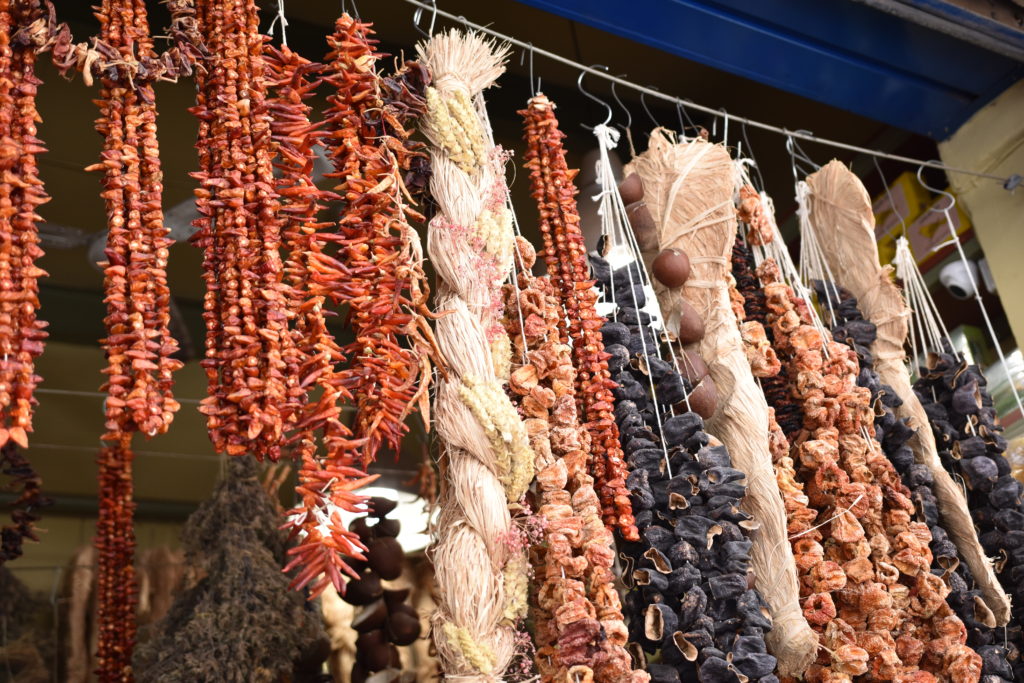

Geron is an avid traveler, entreprenuer and mens style aficionado. He love’s mac and cheese, getting discounts, his momma, and a good whiskey, not particularly in that order. It’s alleged he lives in Miami, but no one really knows anymore.
Follow him on instagram at @geronp
